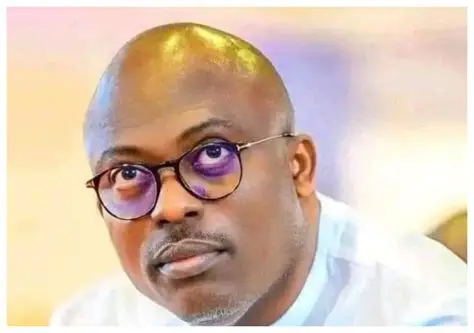
For six long months, Rivers State has been without its elected governor—a political vacuum created by the emergency rule declared by President Bola Ahmed Tinubu in March. Now, as the clock runs out on that extraordinary intervention, all eyes turn to Government House, Port Harcourt, where Governor Siminalayi Fubara is set to make a dramatic return to office.
But his reinstatement is not just about resuming power; it is about healing wounds, mending fences, and restoring confidence in a state shaken by political turbulence.
The Deputy National Legal Adviser of the Peoples Democratic Party (PDP), Barrister Okechukwu Osuoha, has charged Fubara to approach his comeback with humility, loyalty, and an unwavering commitment to the PDP, the platform that brought him to power. According to Osuoha, the six-month suspension of the governor’s executive functions—though controversial—was tied directly to the emergency declaration, and with no extension granted, the Constitution compels his immediate return.
“The issue is that there was an emergency declaration by the President, constitutionally, which is allowed. He has to come back to the office because the suspension was for six months, and there has been no extension. Therefore, he must return and assume his role as executive governor of Rivers State,” Osuoha stated.
Yet, beyond the legal technicalities lies the deeper challenge of reconciliation. Rivers politics has been plagued by fierce rivalries—between the executive and legislative arms of government, and between Governor Fubara and the political heavyweights who once championed his rise. Osuoha insists that this moment of transition must mark the beginning of healing, not renewed hostilities.
“Every Nigerian expects a cordial relationship between the executive and the legislative arms of Rivers State, between the governor and the House of Assembly,” he said. “Let there also be a good relationship between him and his godfather, whoever made it possible for him to secure that position. There must be peace and unity in the state so that development can take place because Rivers has suffered a lot.”
For the PDP, the stakes are even higher. With Nigeria’s political terrain shifting ahead of 2027, party cohesion in oil-rich Rivers is non-negotiable. Osuoha reminded Fubara of his duty to the PDP, stressing that party loyalty remains the strongest pillar of political survival.
“He is still a member of the PDP and should participate fully in party affairs. Party is supreme. If you have any problem, the party will come to your rescue and support you. I want to see him participating fully in PDP so Nigerians will know he belongs to the party,” he said.
As Rivers State prepares for life after emergency rule, the return of Governor Fubara could prove either a catalyst for peace and progress—or a fresh trigger for political strife. The coming weeks will reveal whether he embraces the call for reconciliation, unity, and loyalty, or whether the state risks sliding back into its familiar cycle of power tussles.
